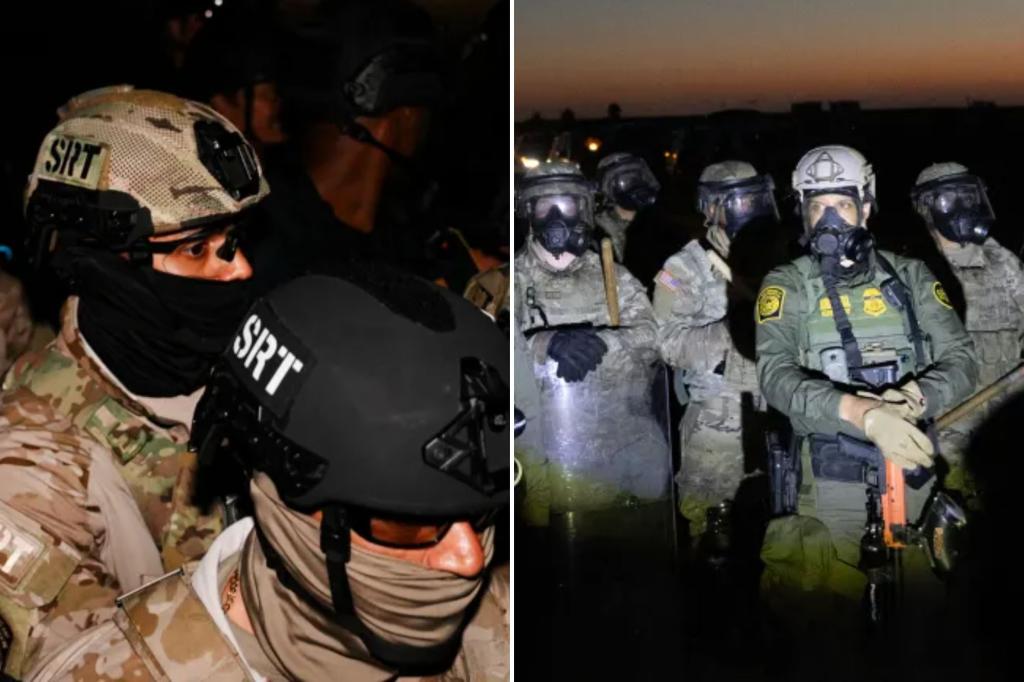California Moves to Ban Masked Law Enforcement Officers Amid Immigration Controversy
In a significant legislative move, California lawmakers have passed a measure that would prohibit most law enforcement officers from covering their faces while on duty. This bill, approved on Thursday and now awaiting Governor Gavin Newsom’s signature, emerged as a direct response to recent immigration enforcement operations in the Los Angeles area where federal agents conducted raids with their faces covered and identities concealed. The legislation represents California’s latest attempt to establish boundaries around immigration enforcement tactics that many state officials consider intimidating and potentially unconstitutional. Though California is pioneering this approach at the state level, similar bills have been introduced in Tennessee, Michigan, Illinois, New York, Massachusetts, and Pennsylvania, with Democrats in Congress also proposing comparable federal restrictions.
The bill specifically targets the wearing of neck gaiters, ski masks, and other facial coverings by both local and federal officers during official operations. Importantly, the legislation includes sensible exceptions for undercover operations, medical masks like N95 respirators, and tactical gear required for specific dangerous situations. While Governor Newsom has publicly criticized the practice of masked immigration enforcement, he has previously expressed concerns about California’s authority to regulate federal agents’ conduct. This creates an interesting legal question should he sign the bill into law: can a state effectively enforce such restrictions on federal agents operating under presidential directives? Newsom has approximately one month to make his decision on whether to enact this first-of-its-kind legislation.
The urgency behind this bill has been amplified by recent developments in federal immigration enforcement. Since June, federal agents have conducted extensive immigration raids throughout Southern California, operations that have triggered protests and prompted the federal government to deploy National Guard troops and Marines to the area. The legislative push gained additional momentum following a recent Supreme Court ruling that allows the federal government to resume sweeping immigration raids in Los Angeles. According to supporters of the bill, this court decision permits federal agents to target migrants based on characteristics like race, ethnicity, language, or presence in certain locations. Democratic Assemblymember Juan Carrillo emphasized this concern, stating that the Supreme Court ruling “effectively allows federal agents to stop suspects based solely on their race, language, or job,” raising profound civil rights concerns.
The human impact of masked enforcement operations forms the emotional core of supporters’ arguments. “How is anyone supposed to reasonably believe that they are law enforcement officers and not masked individuals trying to kidnap you?” Carrillo asked colleagues before the vote, painting a vivid picture of the fear experienced by those confronted by unidentifiable armed agents. “Imagine the absolute fear of being pulled over at gunpoint by a group of masked individuals.” Bill proponents have also found intellectual support from constitutional law expert Erwin Chemerinsky of UC Berkeley, who argues that while states cannot directly regulate federal agencies, federal employees are not automatically exempt from state regulations unless those rules would “significantly interfere with the performance of their duties.” Chemerinsky notes that historically, “ICE agents have never before worn masks when apprehending people, and that never has posed a problem,” suggesting that the new practice is unnecessary for agent safety.
Opposition to the bill comes primarily from Republican lawmakers and law enforcement agencies who contend that prohibiting face coverings would expose officers to greater danger. GOP State Senator Kelly Seyarto crystallized this perspective with his statement: “Bad guys wear masks because they don’t want to get caught. Good guys wear masks because they don’t want to get killed.” Officials from the Trump administration have attempted to justify the use of facial coverings by claiming that federal immigration agents face increased harassment both in public and online, suggesting that anonymity provides necessary protection for officers performing controversial enforcement duties. This position reflects the tension between transparency in law enforcement and the personal security concerns of individual officers operating in politically charged environments.
The debate over masked law enforcement represents a microcosm of larger national questions about immigration enforcement, civil liberties, and the relationship between state and federal authority. Several state attorneys general have argued that masked agents generate fear and undermine public trust in law enforcement—essential ingredients for effective community policing. As Governor Newsom weighs his decision, the implications extend far beyond California’s borders. If signed into law, this legislation could establish a precedent for other states seeking to regulate how federal agents conduct operations within their jurisdictions. The outcome will likely influence not only how immigration enforcement proceeds in California but also shape the ongoing national conversation about accountability, transparency, and dignity in law enforcement practices across the United States. At its heart, this legislation asks a fundamental question: in a democratic society, should those enforcing the law be identifiable to those subject to that enforcement?











